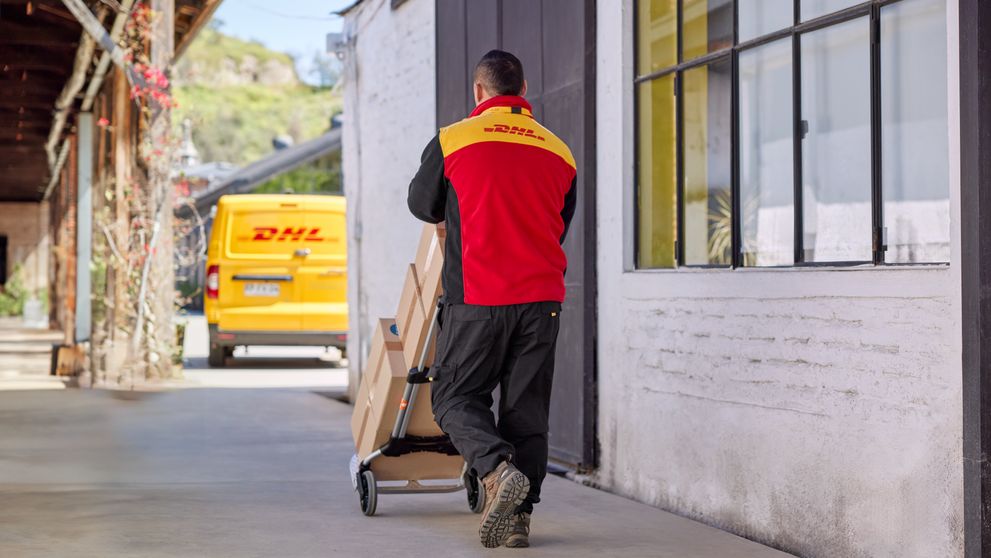It is no secret that customs duties often pose a significant challenge for businesses looking to expand to the global market due to the added costs. However, through the lens of free trade agreements (FTAs), especially where Vietnam stands as a proud member, there's a silver lining. By aligning with the requirements of an FTA, businesses can leverage preferential duty rates to minimise their expenses and also streamline their international operations. But what is the meaning of a free trade agreement, and how do enterprises benefit from it?
What is a free trade agreement?
At its core, an FTA is a negotiated pact between two or more nations to lower import and export barriers. What these agreements do is pave the way for countries to enjoy preferential access across specific sectors, often by exempting select businesses from customs duties and associated taxes.
By entering a free trade agreement, businesses within the country that engage in trade with companies in other member countries under the FTA can enjoy a list of advantages, including the following:
- Cost savings: A direct benefit of lowered trade barriers is considerable cost savings. Reduced tariffs mean businesses can now offer products at a more attractive price or enjoy higher profit margins. Beyond tariffs, the removal of other trade barriers can also streamline operations and reduce logistical costs.
- Reduced barrier to trade: FTAs also address non-tariff trade barriers. For instance, an FTA may offer clearer documentation processes, eliminate redundancy in testing or qualification protocols or introduce provisions for advanced goods classification before shipping. Through these ways, they streamline the customs clearance process, facilitating seamless international trade.
- Predictability: FTAs provide a framework of rules and a more predictable trading and investment environment, diminishing uncertainty and empowering organisations to make long-term plans or investments with confidence.
- Increased market access: FTAs act as gateways, opening up new international markets for businesses. A product that might once have been priced out of a foreign market due to high tariffs can, through an FTA, become competitively priced, enabling businesses to reach a broader customer base.
However, this brings to mind the question: Does Vietnam have a free trade agreement that businesses can tap into? Absolutely. In fact, as of August 2023 the country has become a signatory to 19 active and planned FTAs, which are segmented into two types of categories.
Vietnam’s FTAs
Bilateral FTA
In a bilateral FTA, two countries agree to ease trade restrictions and broaden the business opportunities they share by cutting tariffs and extending a favoured trade status to each other. Such deals frequently revolve around prominent sectors, especially those protected or championed by government interventions.
United Kingdom–Vietnam Free Trade Agreement
Back in 2021, Vietnam’s strategic trade initiatives continued to gain momentum, marked by the signing of the United Kingdom–Vietnam Free Trade Agreement. This fresh pact promises to elevate Vietnam's exports to the United Kingdom (UK).
South Korea–Vietnam Free Trade Agreement
Drawing from another concrete example, the South Korea–Vietnam Free Trade Agreement sealed in 2015 saw the easing of investment requirements for Vietnam. This pivotal move unlocked doors to greater foreign direct investment across various areas, including Vietnam’s energy sector.
An illustrative case in point is the partnership formed between SK Ecoplant, an affiliate of South Korea's third-largest conglomerate, SK Group, and Vietnam’s Nami Solar. Committing to a US$200 million joint venture, this alliance aims to produce up to 250 MWp of rooftop solar power, catering to the energy needs of local enterprises.
Multilateral FTA
Multilateral FTAs encompass agreements amongst three or more nations. In these comprehensive pacts, nations extend each other the "most-favoured-nation" status, ensuring that all participants reap the best possible trade terms, coupled with minimised tariffs.
ASEAN Free Trade Area
A notable example of a multilateral FTA is the ASEAN Free Trade Area (AFTA), through which member nations benefit from a surge in intra-ASEAN capital, labour, and technological exchanges. Under this established FTA, developed ASEAN countries transfer labour-intensive work to developing nations and focus on high-tech sectors, thus elevating their industrial capabilities.
Simultaneously, developing member states can harness their labour resources, adopt suitable technologies, and learn from their developed counterparts. As a signatory, Vietnam has benefitted from an expansion in labour and resource-intensive sectors, such as textiles and agro-products.
Regional Comprehensive Economic Partnership
Besides this, there is also the Regional Comprehensive Economic Partnership (RCEP). This free trade agreement was clinched between Vietnam, the ASEAN Member States, and many global powerhouses, including Australia, Japan, China, New Zealand, and South Korea.
According to the World Bank's insights, Vietnam's electrical equipment and machinery sector is projected to expand at 12.1% due to the revised tariffs and progressive policies under the RCEP. Textiles closely trail behind, with an expected growth trajectory pegged at 9% due to the demand from RCEP member countries.
By paring down bureaucratic layers, FTAs also invite broader participation from small and medium-sized enterprises (SMEs), which form the backbone of Vietnam—constituting 98% of all businesses, as reported by Vietnam Briefing. The RCEP, in this context, offers Vietnamese SMEs a golden ticket to ascend the value chain.
In the grand scheme of things, RCEP is poised to solidify regional supply chains and grant Vietnam access to more expansive consumer markets while attracting foreign investments. In doing so, it supercharges growth and expedites post-pandemic economic recovery for local businesses. The benefits of FTAs are aplenty, but how do enterprises make use of them?
How to leverage FTAs for your business
To tap into FTAs, a pivotal step lies in ensuring your products qualify as 'originating goods' as per the stipulations of the Rules of Origin (ROO) criteria.
Rules of Origin
Based on the ROO, for a product to enjoy the benefits and preferential tariff treatments that FTAs offer, it needs to:
- Be wholly obtained or entirely produced within a country that's a member of the FTA; or
- Undergo what is termed as a 'substantial transformation' within an FTA member country, meaning that even if a good is partially manufactured within an FTA member nation, it must undergo significant processing or manufacturing in the free trade area.
Certificate of Origin
Different FTAs may have different ROO criteria and methodologies. Nevertheless, a unifying factor among them is the mandatory submission of a Certificate of Origin (COO). A COO verifies the origins of your goods, enabling you to unlock the preferential tariff treatments and broader market access offered under the FTA. To obtain a COO, you will need to:
- Ensure ROO Compliance.
- Provide a tariff harmonisation code universally adopted to categorise traded products.
- Arrange for shipment and catalogue your shipment details in the COO before export.
However, with thousands of distinct Harmonised System (HS) codes and the occasional overlaps – where a product matches multiple codes, it demands a discerning eye to pick the most apt. Adding on to the difficulty is when your product is produced using local and imported components, which may not always qualify for tariff reductions under the FTA.
This is where working with a logistics partner like DHL Express Vietnam shines. Our experts, experienced in managing global customs requirements and knowledgeable in tariff code intricacies, can guide you through this process, ensuring smooth customs clearance.








